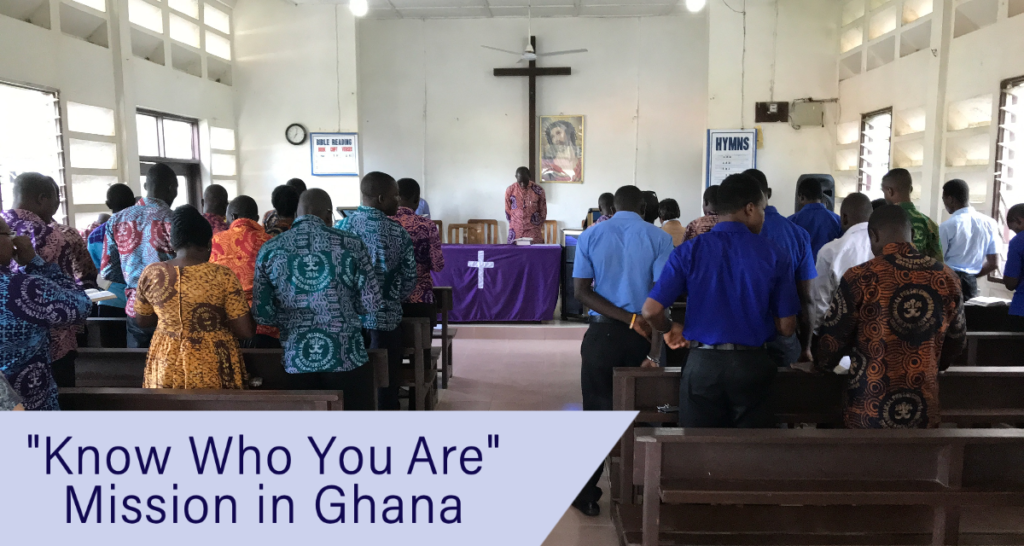Know Who You Are
The sign just inside the gate to the Evangelical Presbyterian (EP) Seminary at Peki, Ghana reads, “Know who you are, where you are, and why you are here.”
I read it each time I walk onto campus. The sign is meant as a daily reminder for the seminarians but I find it a constant challenge. Each time I stand before a class or look out at the chapel as I begin to preach, apprehensiveness invades me. Who am I, an American, to be here, in Ghana, teaching?
I am the visiting professor for both Old Testament Studies and Theology of Church and Sacrament. Inside me is a voice saying, “Make it relevant. Make it apply to the here and now.” But, I am just learning the culture and I will never visit many of the communities where the students will preach, teach, and care for their people. I am not of the heritage or traditions of the EP Church. My examples are uniquely North American, western, and often “white.” Who am I to talk about slavery with those whose ancestors were taken? Who am I, coming from the wealthiest and most militarily powerful nation in the world, to speak of inequality and greed on many levels? Who am I to offer thoughts of church and sacrament when culture and traditions are so diverse?
Before accepting the call to ordained ministry, I was a teacher. As a teacher, I believe that with each lesson, I should learn at least as much as the students. So, they teach me. When discussing a prophet or a church concept, I have been learning to share what I know, from my experience. It is a new concept to the students to share their experiences but they are gathering the courage to speak. (Something not often encouraged in traditional Ghanaian education.) They teach me about who they are, and why they are here and although they do not say it, we know we are in a place where God brings us together as one.
Just this morning in chapel, one of the students was preaching using Joel as his text. I was so pleased to him share some of the concepts of the prophets I had been teaching. Later he said, “Dr. Larry has told us we cannot just go to our churches and say, ‘Joel says…’ We must make it relevant. We must apply it to people’s needs.”
Larry and Debbie Colvin serves with the Evangelical Presbyterian Church, Ghana. Her appointment is made possible by your gifts to Disciples Mission Fund, Our Church’s Wider Mission, OGHS, and your special gifts.

